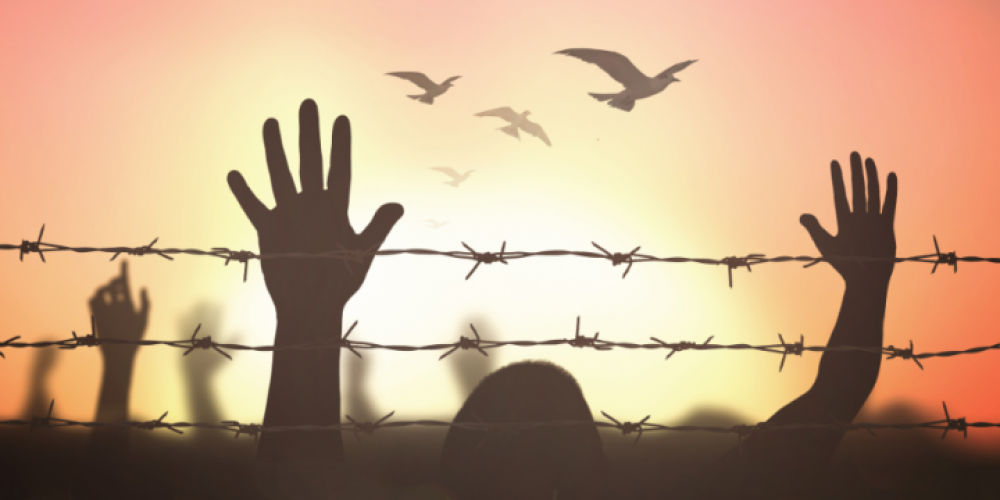
Authoritarian leaders object to and ban criticism. The media are under threat in places where freedom of expression once flourished. So what progress has been made on human rights? In the world, in Europe, in Belgium?
The academic experts of the Vrije Universiteit Brussel are happy to share their expertise and analysis with you. Human rights is in our university’s DNA. For the Vrije Universiteit Brussel, the Universal Declaration of Human Rights is a kind of Magna Carta around which education, research and social commitment revolve.
For example, the VUB Fundamental Rights & Constitutionalism research group (FRC, www.vub.ac.be/FRC) has just been selected to be part of the multidisciplinary research network of FRANET, the EU Agency for Fundamental Rights. Other the next four years, FRC will be providing research services on nine fundamental rights themes that are at the heart of the FRA’s work programme in relation to Belgium and access to justice:
- Asylum, migration & borders
- Gender
- Hate crime
- Information society, privacy & data protection
- LGBTI
- People with disabilities
- Racism & related intolerance
- Rights of the child
- Roma
VUB experts
- 1. The UDHR or its erosion – Article 30: No country and no human being may attempt to destroy the rights set out in this Declaration
Stefaan Smis, professor of Law
Stefaan Smis is a professor at the Faculty of Law and Criminology, a member of the departments of International and European Law and vice-chair of the FRC. His research focuses on international human rights protection, the relationship between human rights and international humanitarian law, and international criminal law. Among other things, he has published a human rights manual, which analyses human rights from an international law perspective.
Contact Stefaan Smis
02 629 2425
- 2. The right to privacy in times of accelerated technology
Paul De Hert, professor of law
Paul De Hert is an international human rights expert. Most of his work is devoted to, but not limited to, criminal law and technology and privacy laws. He is director of the FRC research group and a member of the editorial boards of various national and international scientific journals such as the Inter-American and European journal for Human Rights (published by Intersentia), Criminal Law & Philosophy (Springer).
Contact Paul de Hert, also regarding FRANET
0498 811 651
- 3. The Marrakech Declaration and Migration
> Ilke Adam, political scientist
Ilke Adam is a research professor at the Institute for European Studies (IES) and part-time lecturer at the Université Libre de Bruxelles. At IES she coordinates the research group on migration and diversity. Her research interests are immigration and integration (policy), multiculturalism, citizenship, discrimination, sub-state nationalism, federalism and comparative policy analysis.
On 4 December, Adam receives Professor Jean Beaman of Purdue University in the US, who will present her book on the children of North African migrants in France. Despite securing good jobs and joining the middle class, they are still considered outsiders. www.ies.be/other/citizen-outsider-children-north-african-immigrants-france
On 5 December, Adam leads a debate on anti-discrimination policy and anti-racist activism in a polarised era. www.ies.be/other/anti-discrimination-policy-and-anti-racist-activism-polarized-times
On 18 December, International Migrant Day, Adam will give a lecture on Brussels’ integration policy for migrants. She advocates a switch in policy from integration to equality and a radical approach for Brussels. www.bozar.be/en/activities/146741-from-integration-to-equality-policy-a-plea-for-a-radical-brussels-approach
Contact Ilke Adam
0475 38 87 27
> Florian Trauner, political scientist
Florian Trauner is a professor at the IES. He is also a visiting professor at the College of Europe, where he teaches a course on EU migration policy. His research interests include EU justice and home affairs (in particular migration, asylum, visas, return and counterterrorism), links between European internal security and foreign affairs/external relations, the dynamics of EU decision-making and relations between the EU and the Western Balkans.
Contact Florian Trauner
0485 246 551
- 4. Modern slavery
Amy Weatherburn, PhD student in law
Amy Weatherburn holds an LL.M from the University of Nottingham in human rights law. She is a PhD candidate at VUB conducting research on human trafficking for the purposes of labour exploitation, analysing the effectiveness of the implementation of the European legal framework and the handling of labour exploitation in law. She is coordinating the EU-funded DESIrE project, which aims to better understand the impact of sex work legislation on the prevalence of people trafficking.
Contact Amy Weatherburn
0472 503 823
- 5. Human rights in Belgium: refugees, asylum seekers, transmigrants, children
Sonja Snacken, jurist and criminologist
Sonja Snacken is a professor of criminology, penology and sociology of law. Her research focuses on (comparative) punishability in Belgium and Europe and various forms of (extreme) institutional dependence, with a focus on detention. She has been involved in more than 40 national and international research projects, with a particular emphasis on integrating an empirical social science and human rights approach.
Contact Sonja Snacken
02 629 2644
- 6. Freedom of the press in the world, Europe and Belgium
Katia Segers, communication scientist
Katia Segers is a senior lecturer at the department of Communication Sciences and a Flemish representative and senator. She is also chair of the Brussels Arts Platform, the centre for artistic research and the doctorate in the arts. Between 2002 and 2014 she was director of CEMESO and is now co-director. Her research and publications focus on children, media and culture, media literacy and media and cultural policy.
Contact Katia Segers
0477 572 446
- 7. The right to life and a fair trial: the case of Ahmadreza Djalali
Caroline Pauwels, rector Vrije Universiteit Brussel
Caroline Pauwels is a professor of communication sciences and since September 2016 has been rector of the university. Her research focuses on European and national media policy issues and the economy of the media sector. In 2015, she organised the first World Difference Day (www.differenceday.com), which draws attention to freedom of expression and media.
Contact Caroline Pauwels
02 629 21 40
rector@vub.be